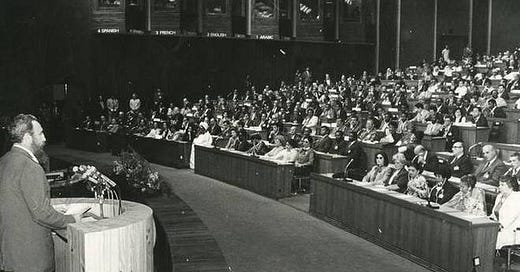People’s socialist revolutions triumphed in China in 1949 and in Cuba in 1959. In their subsequent evolution as revolutions in power seeking to construct socialism with characteristics appropriate for the conditions in their countries, they have arrived to be vanguard nations in the worldwide construction of an alternative world order. This dynamic occurs in the context of the increasing decadence of the capitalist world-economy and the neocolonial world-system, strengthening the tendency toward the emergence of an alternative order. The possible emerging international order is likely to be characterized by pluripolarity and respect for various models of development and modernization, depending on the sovereign decisions of nations and on the conditions found in their countries. And it likely will be characterized by norms favoring mutually beneficial trade, providing structural support for world peace and prosperity.
The historic leadership role of revolutionary Cuba in the T…


